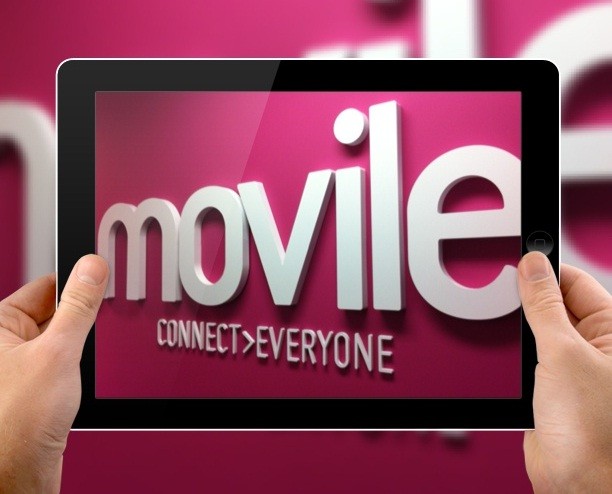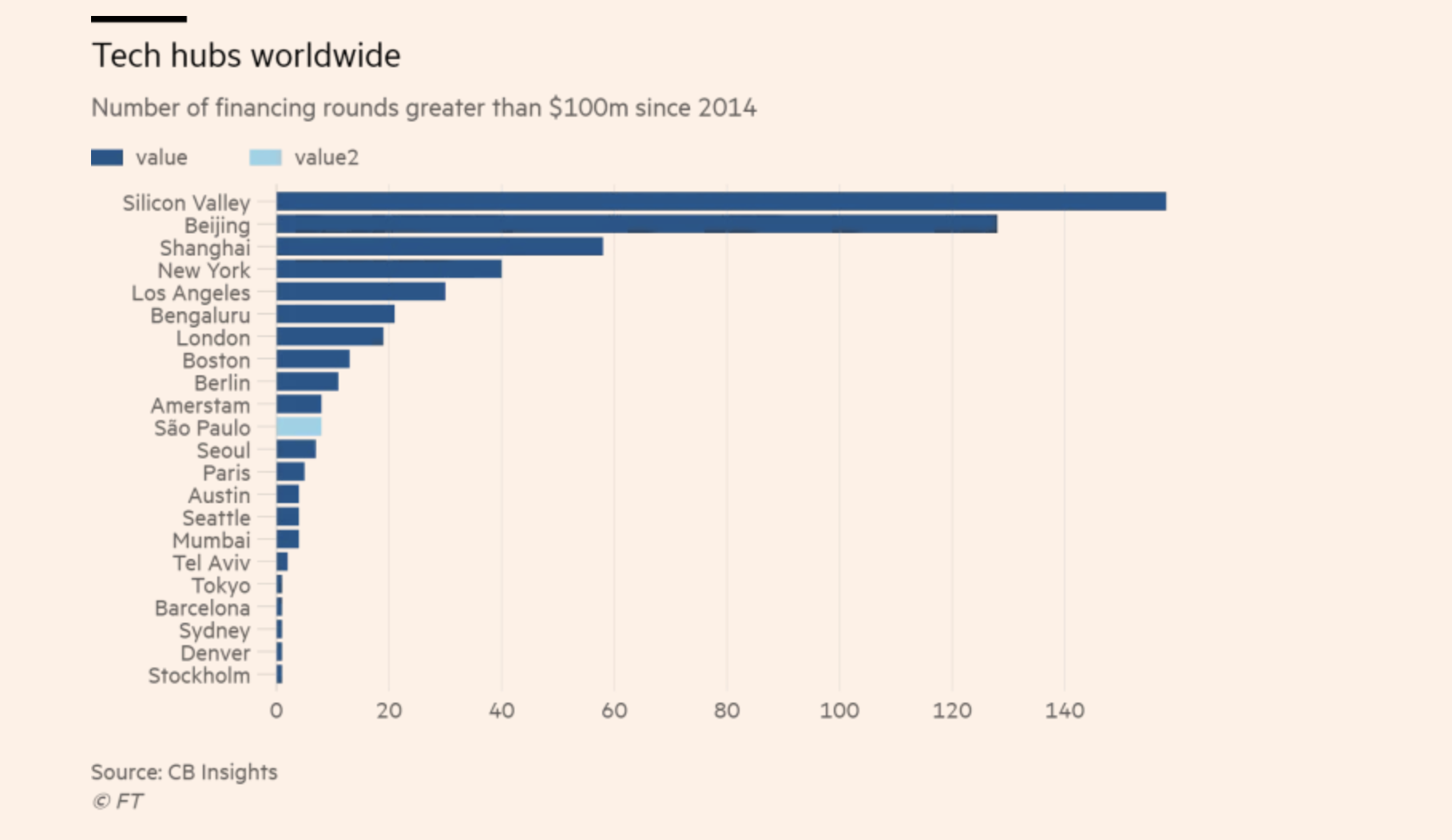Everyone’s heard about the PayPal Mafia, the group of founders and first hires that launched the company over a decade ago in Silicon Valley and then went on to build other giants such as YouTube, Tesla, and LinkedIn.
But what about in Latin America? There’s the Groupon Mafia, which just had another exit with Cornershop’s $225M acquisition, but there’s also Movile, one of Brazil’s most successful tech companies.
With more than 150M monthly active users, estimated revenues of US$240M+, and US$375M in venture capital creating a likely US$1 billion valuation, Movile is not only changing the course of Latin American tech, but the company is also helping inspire the next generation of entrepreneurs and investors.
Source: “A new $124 million for Brazil’s Movile proves that investors still see promise in Latin American tech” TechCrunch
While Movile used some of the capital it received from investors like Naspers to expand the company’s own businesses, it also dedicated a significant portion to acquire and invest in other mobile companies. The company founded or has a stake in more than 20 other technology companies, including Rapiddo, PlayKids, Sympla, iFood, MapLink, Apontador, SuperPlayer, Mercadoni, and more.
For Fabricio Bloisi, Movile’s cofounder and CEO, these investments, and nearly every decision the company makes, are all part of a bigger plan to help Movile achieve its ultimate goal: making life better for one billion people.
The team behind the mission
During Movile’s early days, the local entrepreneurial ecosystem in Brazil was just getting started; bureaucracy, a lack of government incentives, and limited access to capital for technology entrepreneurs made it very difficult to launch and scale a company. But none of this stopped Fabricio Bloisi and his cofounders.
After completing a degree in computer science and getting inspiration from technology companies like Google and Apple, Bloisi and his partners set out to start a mobile-oriented company building products that could grow with Brazil’s mobile wave. After looking for product market fit, Bloisi and Fábio Póvoa founded Compera in the early 2000s. Shortly after, Compera merged with nTime and acquired Movile, another company centered around mobile services founded by Eduardo Henrique.
In 2008, MIH Holdings, a subsidiary of Naspers, took a minority stake in ComperanTime, and the following year, ComperanTime announced its merger with Yavox to become ComperanTimeYavox. Eventually, the company rebranded as Movile, with Bloisi and Henrique as the co-founders of the new endeavor. They combined the companies’ products, business models, and distribution strategies so they could scale.
By 2010, Movile was focused on promoting digital inclusion through mobile services in emerging markets. Armed with its mission, help from the entrepreneurial program Endeavor, and strong ties with the local technology universities in Brazil, Movile was able to recruit top talent. Much of this top talent went on to create companies, invest in startups, and support the ecosystem.
The Movile Mafia
One of the biggest missing pieces in the Latin American ecosystem is successful companies that spin off talent and that go on to start other businesses. Unlike Silicon Valley, Latin America only has a few startup ‘mafia’ stories. However, the increasing presence of them is a sign of a maturing startup ecosystem. When early hires leave to start their own ventures, their reinvestments help promote entrepreneurship and drive the ecosystem forward.
Since the early 2000s, many of Movile’s early hires and investors have gone on to found or fund other companies across the region. For example, Rafael Duton, a co-founder of Movile, and Marcelo Sales, the former Director of Innovation at Movile and a current board member, left the company in 2010 to start 21212, an accelerator program that invested in the Brazilian digital ecosystem. In four years, 21212 accelerated 42 companies, created approximately 770 jobs, and developed a rich portfolio and a vibrant network of entrepreneurs in Brazil.
Andreas Blazoudakis, who was the CEO of Yavox Latin America when it merged with Movile (formerly ComperaNtime) in 2009, kept an active leadership role in the company for more than eight years. He went on to start a company called Delivery Center and continued to coach executives at Rappido, an on-demand delivery service owned by Movile.
Fabio Freitas, CTO at Movile’s offices in Rio de Janeiro, also took advantage of his entrepreneurial strengths after leaving Movile, launching a number of mobile applications through his parent company DotLegend.
Fábio Póvoa, another co-founder of Movile and Head of Product and Mobile Services for many years, left the company in 2013 and went on to teach classes at Unicamp, a top university in Brazil. He also became a lead angel investor at SmartMoney Ventures. With investments in 15 companies so far, Póvoa has supported the creation of approximately 400 direct jobs.
Gustavo Di Risio was involved in Movile’s early day to day management. When Di Riso left Movile, he remained close to the team and launched a number of companies, some of which partnered with Movile. He also helped teach the local startup ecosystem with Angel.Education, a program that provides training to entrepreneurs and angel investors. Di Riso created dozens of jobs through the companies he started and the Angel.Education program, and generated a lasting impact on the local ecosystem.
Naspers Latin America investors play a heavy role
Many investors who were part of the Naspers network also positively impacted the Brazilian startup ecosystem. For more than five years, Romero Rodrigues served as a member of the board of directors at Movile while running the company he co-founded, Buscapé, which sold to Naspers. Still a shareholder in Movile, Rodrigues became a Managing Partner at Redpoint eventures, a venture capital firm based in São Paulo. Another Managing Partner at Redpoint eventures, Anderson Thees, was also involved in Naspers as a chairman and investor during the first investments in Movile. He was the CEO of Apontador, which Movile later acquired.
Hein Brand, the CEO of Naspers Latin America in 2009 when Compera and nTime merged, acted as Movile’s chairman and was responsible for managing all of Movile’s regional deals and acquisitions during that time. In 2014, Brand left Movile but continued to advise and invest in Brazilian startups. Marcelo Romeiro was another early investor in Movile who sold his shares to Naspers and went on to do the same.
Perhaps unsurprisingly, numerous members of the Redpoint eventures team have ties to Movile’s early days. Manoel Lemos, another Managing Partner at Redpoint eventures, sold his startup BlogBlogs to Naspers in 2008. Under the Naspers umbrella, he was close to Bloisi and the Movile team. Today, the three entrepreneurs all work together at Redpoint eventures, where they’ve invested in more than 25 companies and created more than 1,000 jobs.
Finally, as the Head of M&A at Naspers Latin America from 2009 – 2015 and currently Zoop’s CFO, Dan Faccio, is also worth mentioning because of his involvement at Qualcomm Ventures after leaving Naspers. Qualcomm Ventures, a São Paulo-based venture capital firm, is a major investor in some of the biggest startup names to come out of Latin America, such as 99, Loggi, Ingresse, CargoX, IguanaFix, among others.
Fueling Movile’s dream
Movile continues to finance its growth through acquisitions and rounds of funding, raising another US$124 million in a round led by Naspers in July 2018. The company’s investment in its native Brazil and the broader Latin American region is extensive, and it’s impossible to name everyone who has played a part in the Movile story. Even so, every past and present employee, investor, and partner plays a critical role in helping Movile achieve its goal of making the lives better for one billion people. It’s difficult to conclude how many lives Movile and its Mafia have impacted so far, but when asked to put a number on it, the individuals mentioned above estimate they’ve collectively impacted nearly 400 million lives, and they aren’t finished yet. It will be exciting to watch the next generation of the Movile Mafia grow across Latin America.



